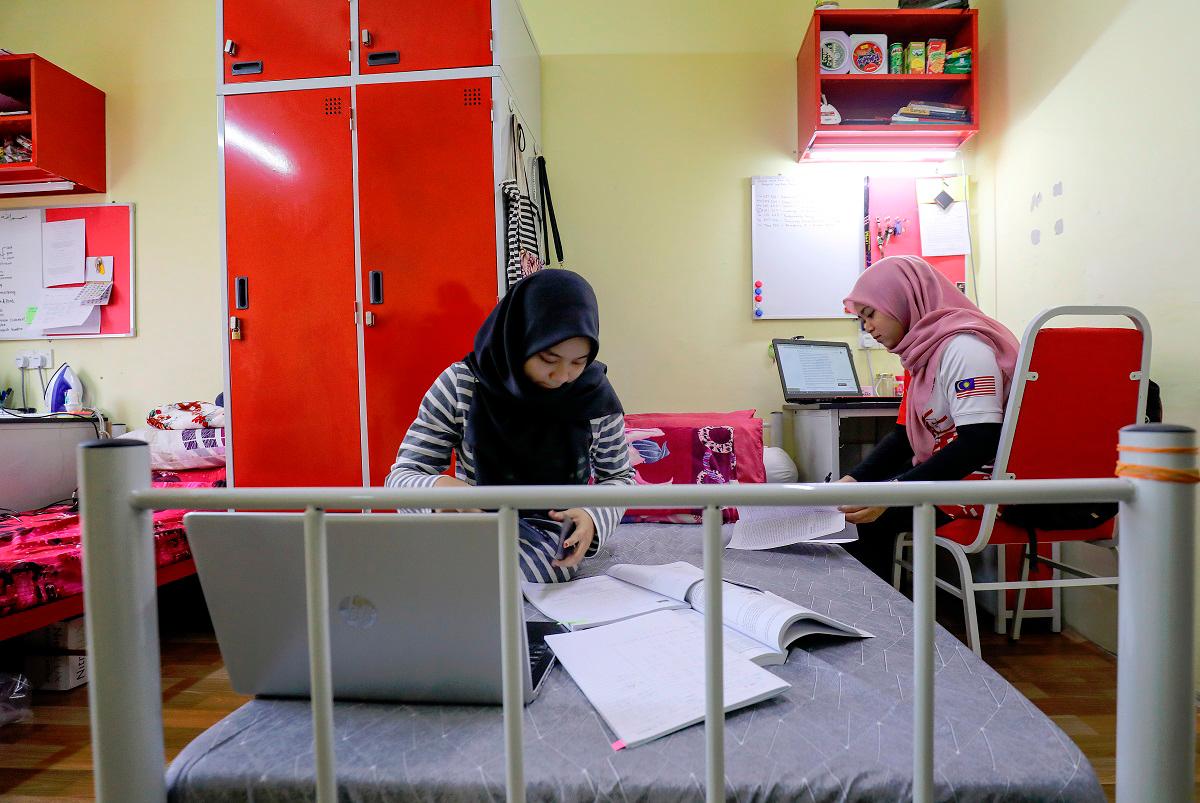PETALING JAYA: While murder is an extreme and rare outcome in university settings, criminologists warn that a lack of safety protocols in student housing could heighten the risk when emotional or financial pressures spiral out of control.
The warning comes in the wake of a recent case involving a 20-year-old university student who was found dead in a student residence unit in Cyberjaya on June 24.
It was reported that the victim’s housemate is alleged to have given her boyfriend an access card to the hostel, prompting calls for tighter visitor monitoring in student accommodation.
Crime analyst Datuk Shahul Hamid said such cases often stem from a volatile mix of relationship breakdowns, emotional turmoil and poor conflict resolution, and could escalate in environments lacking surveillance or support systems.
“Conflicts over jealousy, betrayal, money or emotional abuse could easily trigger a breakdown when there are no safeguards or avenues for de-escalation.”
He added that young people, particularly students, may feel cornered or overwhelmed, especially if they suffer from mental stress, peer pressure or toxic relationships.
“In some cases, the perpetrator wants to silence the victim or avoid exposure. Others are driven by misguided loyalty or group dynamics that promote aggression.”
He said these incidents rarely happen in public campus areas, such as lecture halls or cafeterias.
Instead, they tend to occur in off-campus or private residential settings, such as student apartments, rented rooms or condominiums, where supervision is minimal and access is loosely controlled.
Shahul urged universities and hostel operators to mitigate risk by implementing the following:
- CCTV coverage and improved lighting in residential compounds;
- Strict visitor registration and access card control;
- 24/7 emergency hotlines and campus rapid-response teams;
- Mental health outreach, anti-bullying programmes and anonymous reporting channels; and
- Staff and warden training to identify emotional red flags.
“Students should also be educated on basic personal safety, such as being cautious with roommates and guests, and knowing who to contact in an emergency.”
He advised parents to maintain open lines of communication, visit their children’s accommodation when possible and ensure their children know how to seek help.
“Simple safety tools, such as personal alarms or flashlights, could make a difference. Most importantly, students must feel empowered to speak up when something feels off.”
He stressed that while the recent Cyberjaya case is tragic, murders involving university students are exceedingly rare in Malaysia.
“National youth homicide rates have been on a decline from 0.3 per 100,000 cases to 0.17. So, while the issue is not widespread, it certainly warrants preventive attention.”
Universiti Malaya criminologist Dr Haezreena Begum Abdul Hamid said financial desperation is one of the most common triggers in such cases.
“Crimes of passion are one thing but some murders are also motivated by money, be it inheritance, insurance claims or just sheer debt.”
She added that murder is often not premeditated but committed in the heat of the moment.
“Violence could erupt over something as trivial as a stare-down or an argument, and if emotions flare without anyone stepping in, the worst could happen.”
She said the perception that student housing is inherently safe needs to be re-evaluated as many hostels and rented accommodations have inadequate surveillance, poor lighting and no formal security measures.
“If institutions choose to house students under one roof, they must take full responsibility for their safety.”
This includes panic buttons or distress alarms, especially for students from other states or countries, who may lack support networks.
“Students should be taught to balance privacy with personal safety. Do not open the door to just anyone. And always let someone, a friend, sibling or parent, know where you are going.”
Haezreena stressed that student murders remain an anomaly but that is no reason to be complacent.
“It is not a rampant issue but it is one we cannot afford to ignore.”









